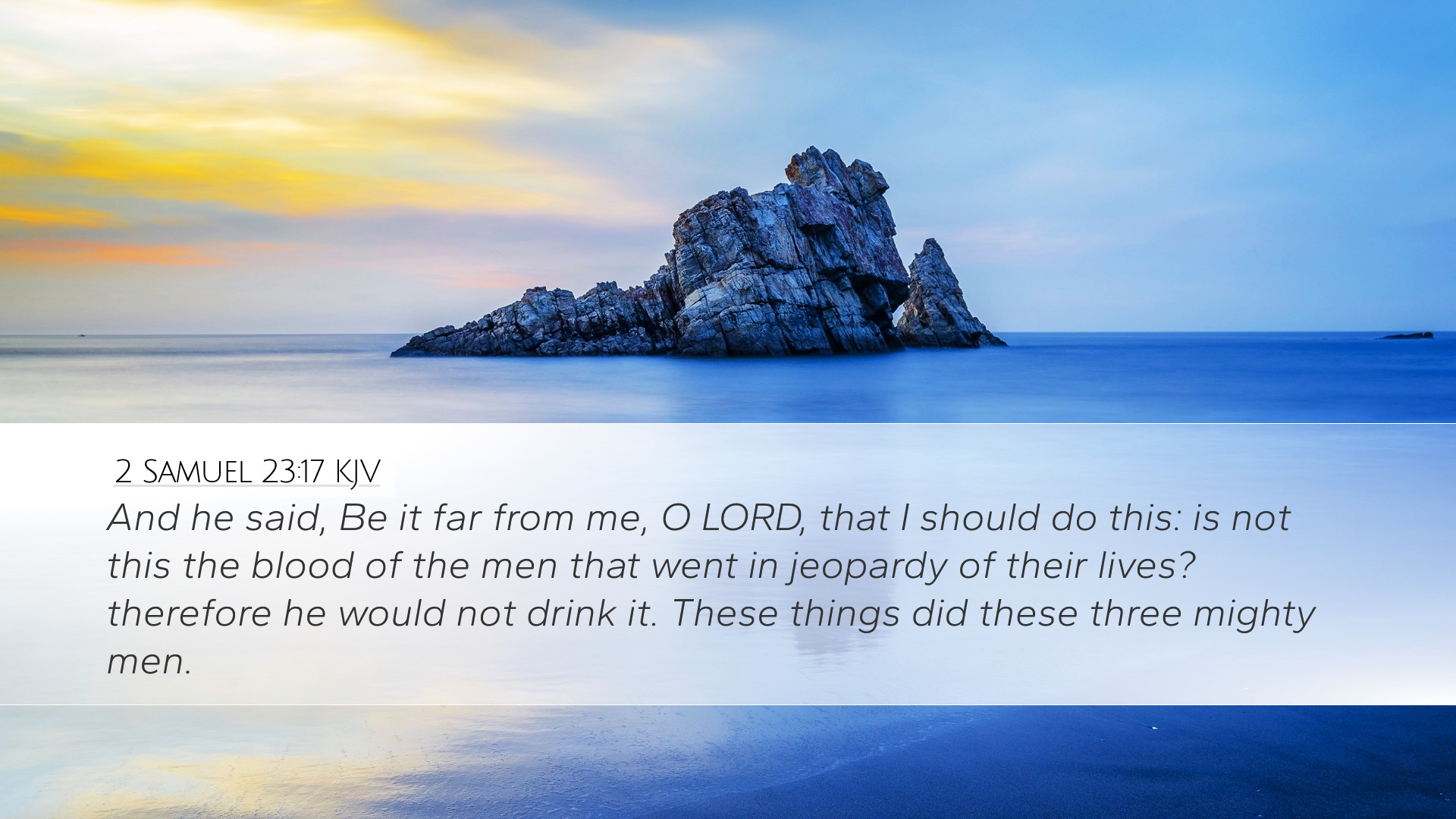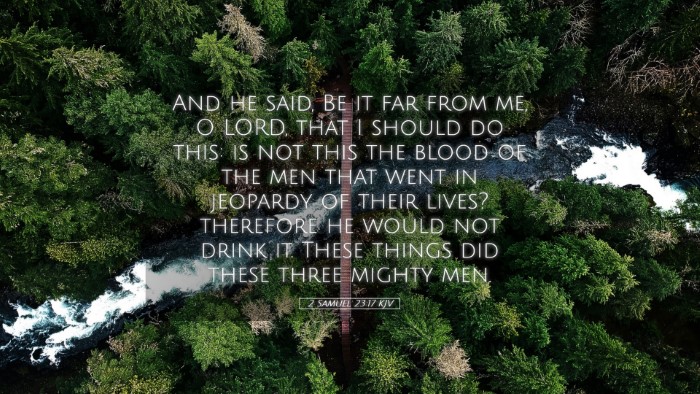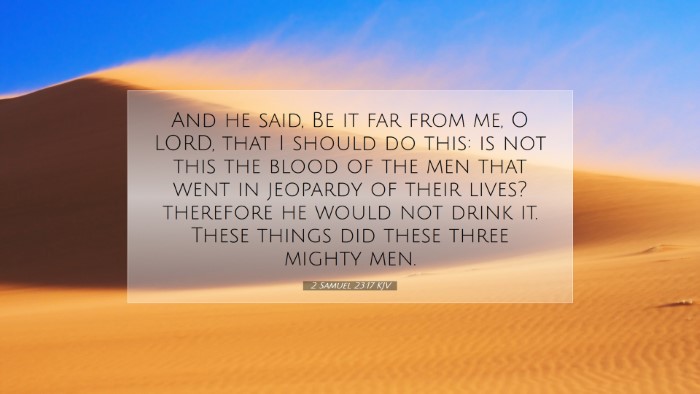Old Testament
Genesis Exodus Leviticus Numbers Deuteronomy Joshua Judges Ruth 1 Samuel 2 Samuel 1 Kings 2 Kings 1 Chronicles 2 Chronicles Ezra Nehemiah Esther Job Psalms Proverbs Ecclesiastes Song of Solomon Isaiah Jeremiah Lamentations Ezekiel Daniel Hosea Joel Amos Obadiah Jonah Micah Nahum Habakkuk Zephaniah Haggai Zechariah MalachiVerse
2 Samuel 23:1 2 Samuel 23:2 2 Samuel 23:3 2 Samuel 23:4 2 Samuel 23:5 2 Samuel 23:6 2 Samuel 23:7 2 Samuel 23:8 2 Samuel 23:9 2 Samuel 23:10 2 Samuel 23:11 2 Samuel 23:12 2 Samuel 23:13 2 Samuel 23:14 2 Samuel 23:15 2 Samuel 23:16 2 Samuel 23:17 2 Samuel 23:18 2 Samuel 23:19 2 Samuel 23:20 2 Samuel 23:21 2 Samuel 23:22 2 Samuel 23:23 2 Samuel 23:24 2 Samuel 23:25 2 Samuel 23:26 2 Samuel 23:27 2 Samuel 23:28 2 Samuel 23:29 2 Samuel 23:30 2 Samuel 23:31 2 Samuel 23:32 2 Samuel 23:33 2 Samuel 23:34 2 Samuel 23:35 2 Samuel 23:36 2 Samuel 23:37 2 Samuel 23:38 2 Samuel 23:39

